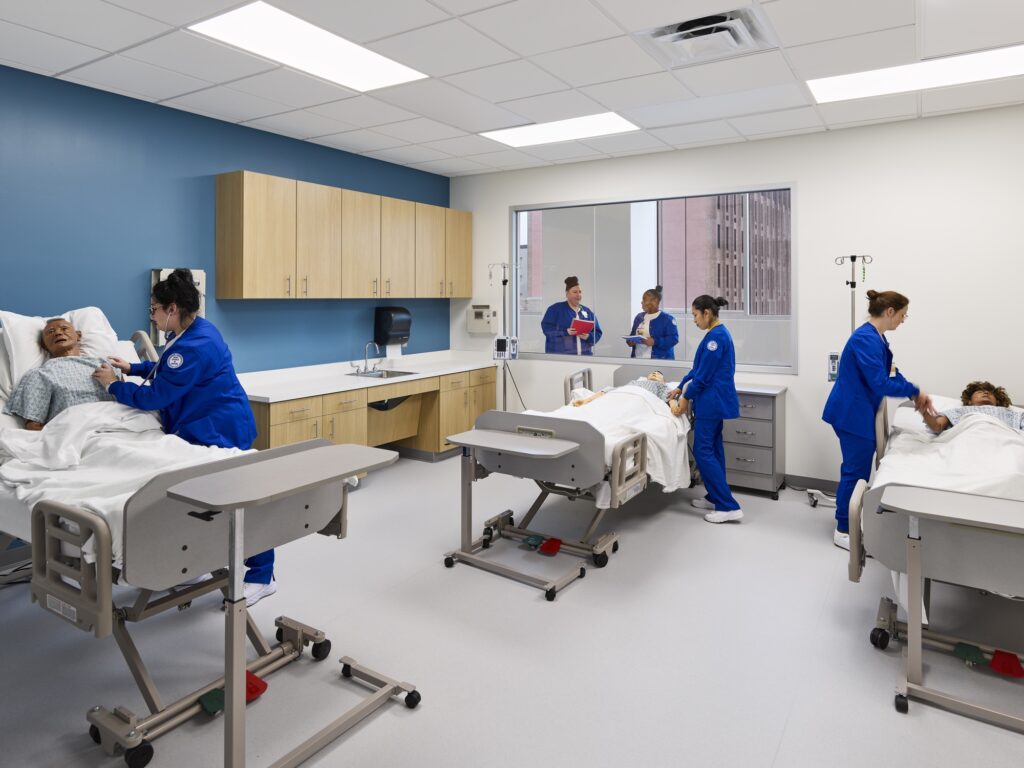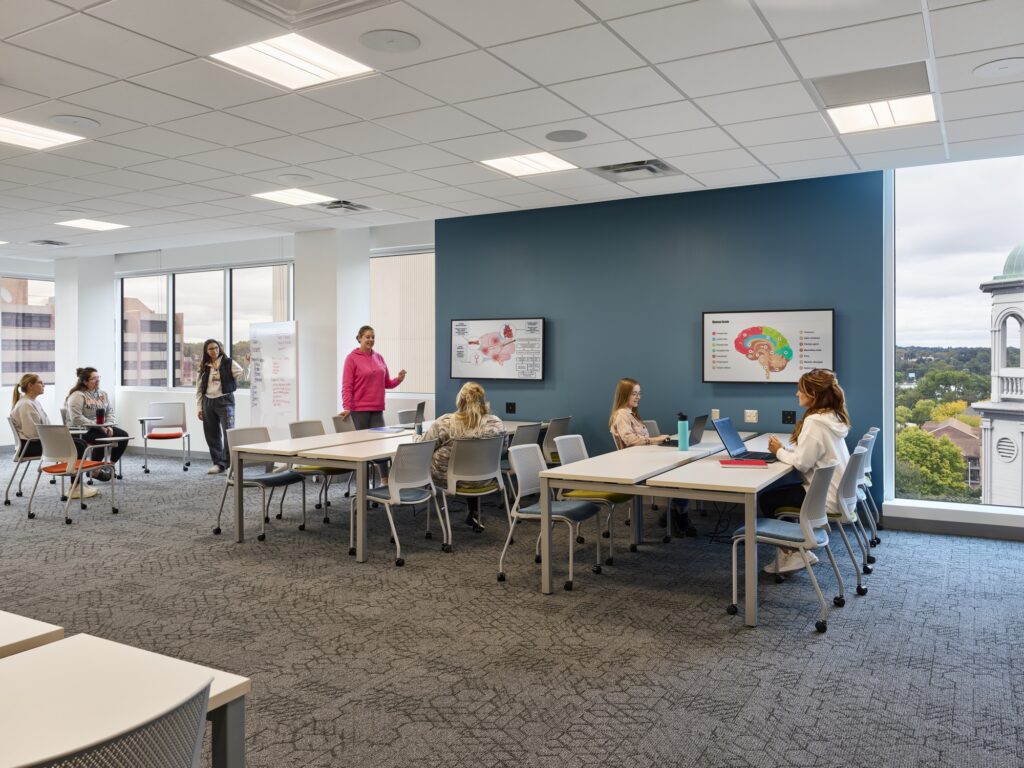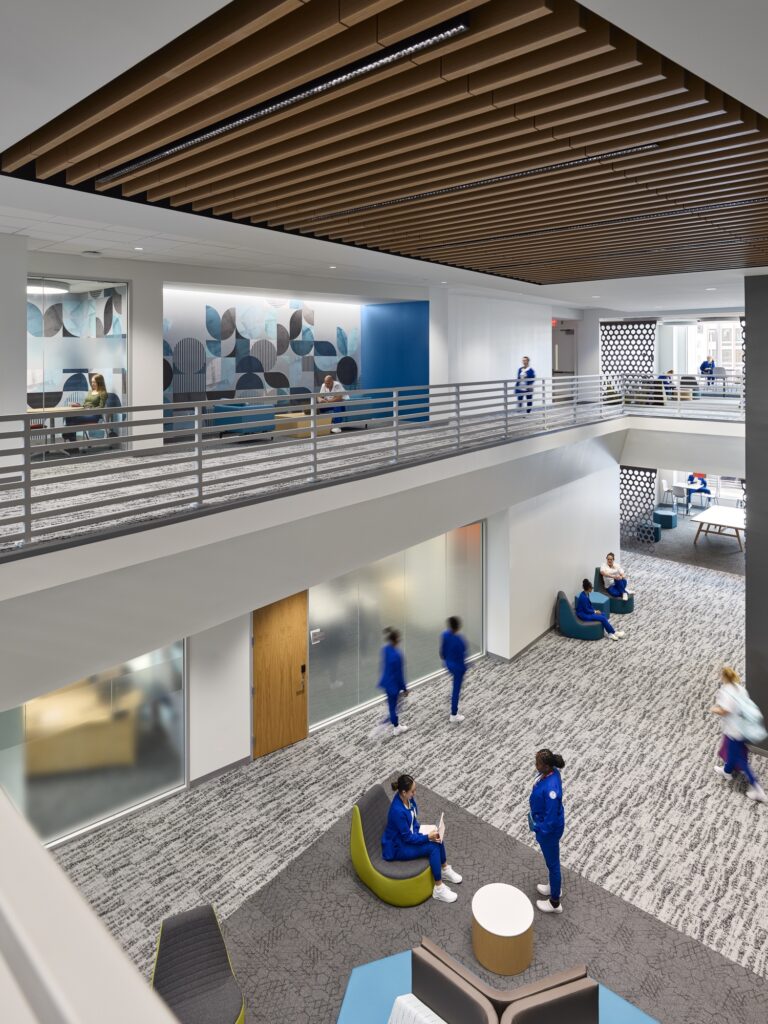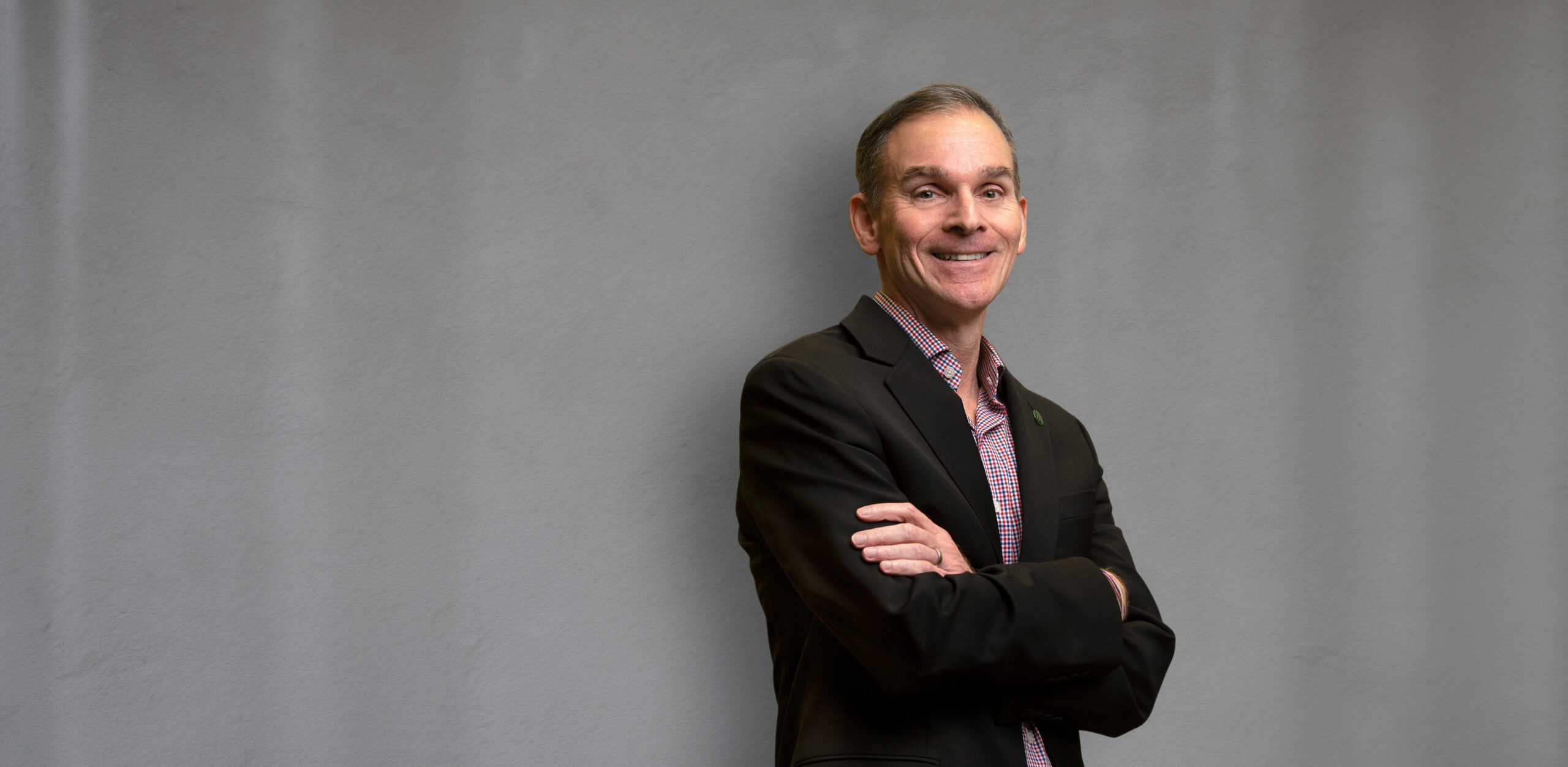To celebrate Nurses Week 2024, Harrisburg University’s President, Eric Darr, PhD, shared his thoughts about how higher learning can support healthcare talent pipelines in Central PA and beyond. Harrisburg University is thrilled to support multiple Medical Assistant and Registered Nurse training programs through industry partnerships that target underserved communities and equip learners while they’re still in high school to seek a sustainable wage in an exciting field right after graduation. You can read the full text of Dr. Darr’s article below.
###
Happy Nurses Week! On behalf of my colleagues at Harrisburg University of Science and Technology (HU), I wish to thank the nurses who make gifts of their time and talent each day. You are faithful stewards of public health, and we wish you all success, happiness, and good health of your own.
I’m here to share great news. But first, let’s take our medicine.
In 2022, vacancy rates for Registered Nurses (RNs) in Pennsylvania rose to 30 percent, a 10-percent increase since 2019. A January 2023 report predicted a shortfall of over 20,000 Registered Nurses in PA by 2026 and an annual nationwide shortage of 194,000 until 2030.
There is a strong need to deepen nursing care in Pennsylvania and beyond. Allow me to share two lessons Harrisburg University has learned about how we, and our colleagues at other institutes of higher learning, can support nursing and public health in new ways.
Lesson 1: Working with Industry

Together, colleges and universities with industry partners can empower students while working to meet local needs and national goals around shortages in nurses and other healthcare professions.
At Harrisburg University, we continue to work directly with companies, hospital systems, physicians, and researchers in the areas of general surgery, structural and vascular heart health, and pediatrics to expand internal and external training programs, virtual/augmented/mixed reality educational programs, and the use of 3D-printed models. Our workforce initiatives bring together multiple departments to present to high-school students about careers in healthcare, including cardiac nurses, researchers, emergency medical services, surgical processing, and other non-clinical pathways.
We continue to host various summits, regional meetings, trainings, and conferences to keep medical practitioners engaged and continuously invested in their ongoing learning, while we inspire younger learners to pursue a future in health science fields.
One direct result of our work with industry is the UPMC Shadyside School of Nursing, located in our newly opened UPMC Health Sciences Tower at Harrisburg University. We recently graduated the first class of 42 new nurses. Every one of them passed their nursing licensure exam and over 80 percent now work at UPMC. The current class has 175 nurses set to graduate this December. This program is now one of the largest nursing schools in the Commonwealth of Pennsylvania and is a model we hope other universities will follow.
HU remains exceptionally proud of our ability to support local talent pipelines and meet national workforce needs – and we couldn’t do it without a close and constantly evolving partnership with our friends at UPMC.
Lesson 2: Removing Barriers to Access

Harrisburg University was founded on the idea of economic development through increasing access and affordability of a STEM education. Removing barriers to access is a key part of how we in higher ed can improve the statistics around healthcare futures and workforce readiness in the coming years.
One example is the partnership Harrisburg University has formed with Hamilton Health Center in Central Pennsylvania, and its Medical Assistant (MA) training program. Hamilton developed the program to address shortages of Medical Assistants in our region. MAs play multiple essential roles in keeping healthcare facilities running smoothly.
Since fall 2023, our university has provided classroom and laboratory facilities to support the program’s first class of students. Nine of the students, all from Harrisburg High School, will graduate in spring 2024. After students complete this classroom experience, a 100-hour externship facilitated by Hamilton Health, and graduate from high school, they have a certificate recognizing them as a Medical Assistant and can sit for the Certified Clinical Medical Assistant Exam – a credential they can carry anywhere in the country. This is job-readiness that can immediately and positively impact our local community.
Now, Hamilton Health – and the region – has a stable talent pipeline for MAs. And our local students have a compelling pathway to continue their education and make their mark in the healthcare industry that desperately needs them. HU is now working with additional schools to double the size of the next class of students.
Deepen Nursing Care by Removing Barriers and Creating Meaningful Partnerships
As we’ve seen here, the barrier between high-school classrooms and experiential, life-transforming career preparation is beginning to vanish. Schools like HU will continue to bring the award-winning industry partners, and we ask in return that you tell your curious, science-loving students who want to make a difference. Businesses and foundations that support healthcare and see the need for growth in health futures make an impact. Join with your local college or university as HU has done – we can truly cause an effect if we work together. As we like to say here, we’re in the business of turning learners into leaders – and vice versa. So let’s learn together and keep the Commonwealth healthy, strong, and ready to build the future together.

All photos ©Tom Holdsworth
